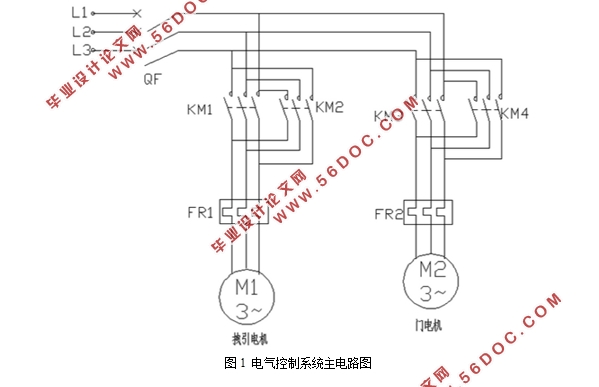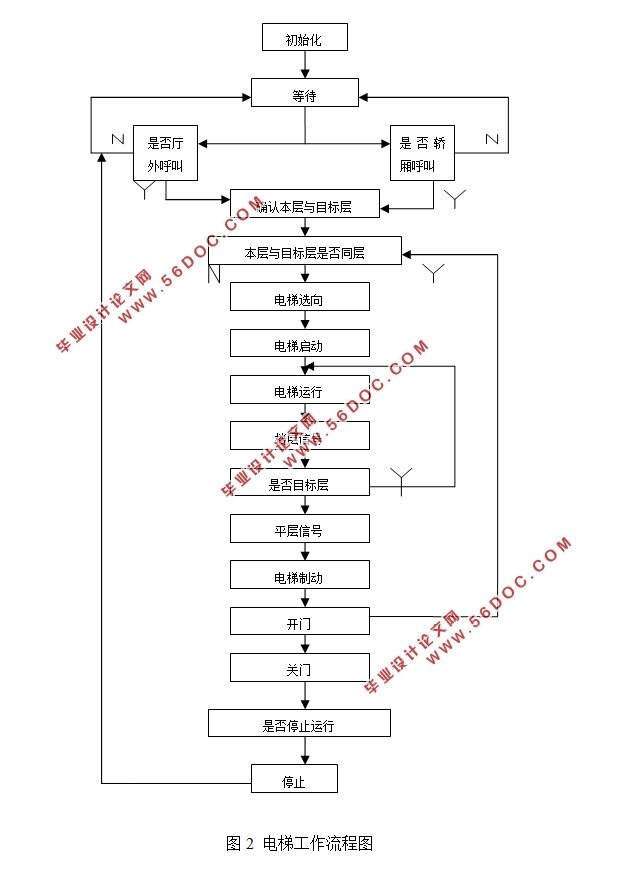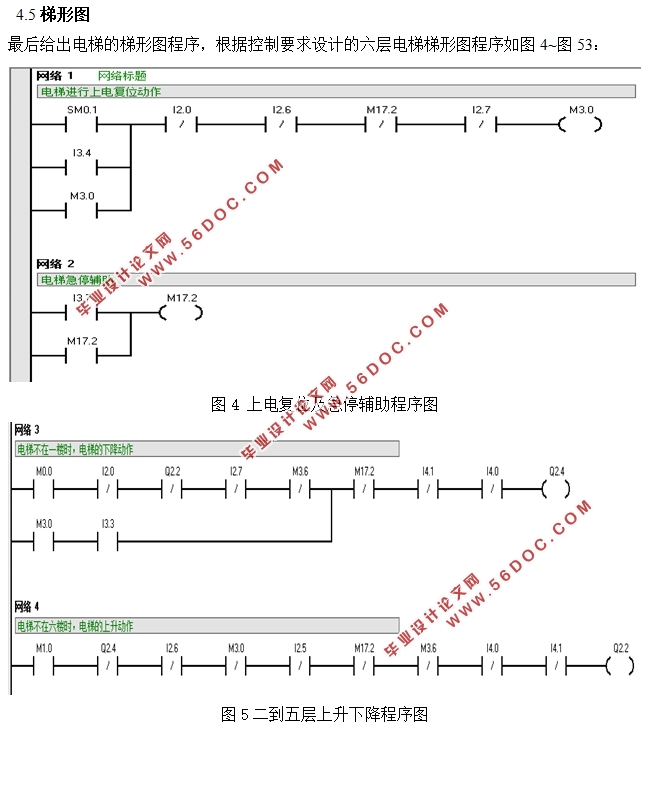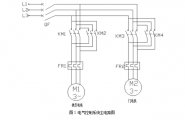基于PLC的六层电梯控制系统的设计
来源:56doc.com 资料编号:5D22252 资料等级:★★★★★ %E8%B5%84%E6%96%99%E7%BC%96%E5%8F%B7%EF%BC%9A5D22252
资料以网页介绍的为准,下载后不会有水印.资料仅供学习参考之用. 密 保 惠 帮助
资料介绍
基于PLC的六层电梯控制系统的设计(论文13000字)
摘 要:传统电梯采用较复杂的继电器—接触器控制系统,自动控制系统存在着可靠性不高,设备工作效率不高等问题,因此本文设计了一套以PLC为核心的六层电梯控制系统来解决问题。西门子S7-200型的PLC是本文进行设计采用型号。通过分析电梯控制系统,可以将其分为逻辑控制系统和速度控制系统两部分,旋转编码器输出脉冲信号,然后PLC处理信号,变频器与PLC连接,最终实现电梯作垂直运动和自动变速控制。最后用西门子编程软件来进行软件编程,通过仿真调试来达到控制要求,最终使电梯的运行变得舒适并且安全。
关键词:电梯;PLC;梯形图
Design Of Control System For Six-layer Elevator Based On PLC
Abstract: Relay contactor control system more complicated by the traditional elevator system, there is high reliability and automatic control, the working efficiency of the equipment is not high, so this paper designs a set of PLC as the core of the six floor elevator control system to solve the problem. The SIEMENS S7-200 type PLC is designed in this paper using the model. Through the analysis of the elevator control system, it can be divided into two parts of control system and speed control system, rotary encoder output pulse signal and PLC signal processing, frequency converter and PLC connection, finally realizes the elevator vertical motion and automatic speed control. Finally, the SIEMENS programming software is used to carry out the software programming, and the control requirements are achieved by simulation and debugging. Finally, the operation of the elevator becomes comfortable and safe.
Key words: Elevator; PLC; ladder diagram



目 录
摘要••••••••••••••••••••••••••••••••••••••••••••••••1
Abstract••••••••••••••••••••••••••••••••••••••••••••••2
1、绪 论 •••••••••••••••••••••••••••••••••••••••••••••3
1.1 电梯的概述..............................................................................................................3
1.1.1 电梯的分类......................................................................................................3
1.1.2 电梯的组成 .....................................................................................................3
1.1.3电梯的工作原理 ..............................................................................................4
1.2 PLC控制电梯的优势..............................................................................................4
1.3电梯的发展趋势..................................................................................................... 5
1.4 课题研究内容 ....................................................................................................... 5
2、国内外现状••••••••••••••••••••••••••••••••••••••••6
2.1 国内现状..................................................................................................................6
2.2 国外现状..................................................................................................................7
2.3 所存在的问题..........................................................................................................8
3、硬件系统组成 ••••••••••••••••••••••••••••••••••••••9
3.1西门子S7-200PLC型PLC的简介.......................................................................... 9
3.2 PLC的梯形图语言(LD).......................................................................................9
3.3电梯控制系统主电路和控制电路设计…………………………………….…….. 9
4.软件设计••••••••••••••••••••••••••••••••••••••••••10
4.1 电梯的控制要求 .....................................................................................................10
4.2电梯的运行流程 ......................................................................................................11
4.3 输入/输出(I/O)端口设计 ................................................................................12
4.4可编程控制器(PLC)CPU的选型........................................... .............................13
4.5梯形图程序 ..............................................................................................................16
5.结果及评论••••••••••••••••••••••••••••••••••••••••35
5.1 梯形图程序的主要功能.........................................................................................35
5.2调试结果..................................................................................................................36
5.3评论..........................................................................................................................39
6.总结••••••••••••••••••••••••••••••••••••••••••••••39
参考文献•••••••••••••••••••••••••••••••••••••••••••••40
致谢•••••••••••••••••••••••••••••••••••••••••••••••••41
|







